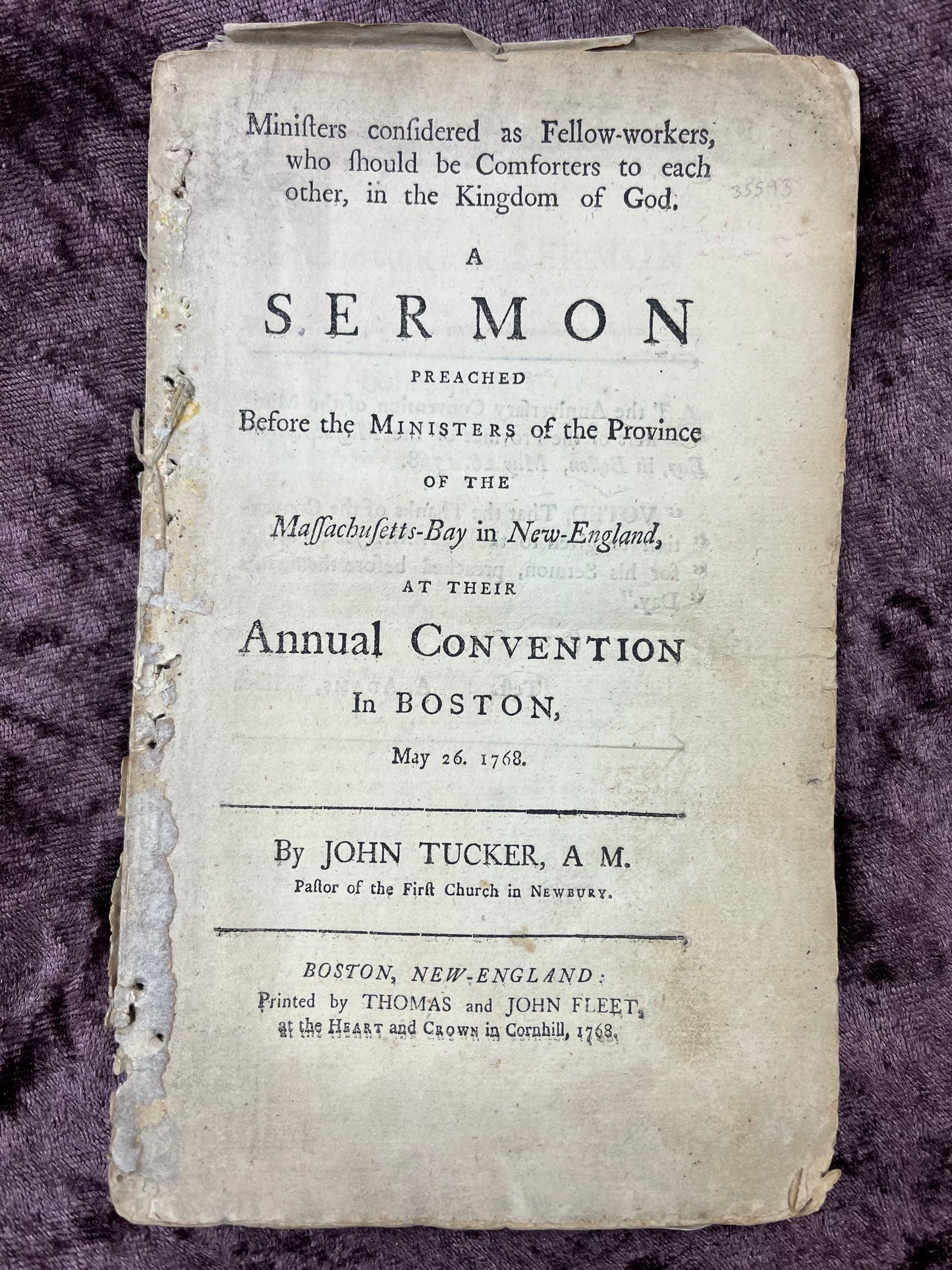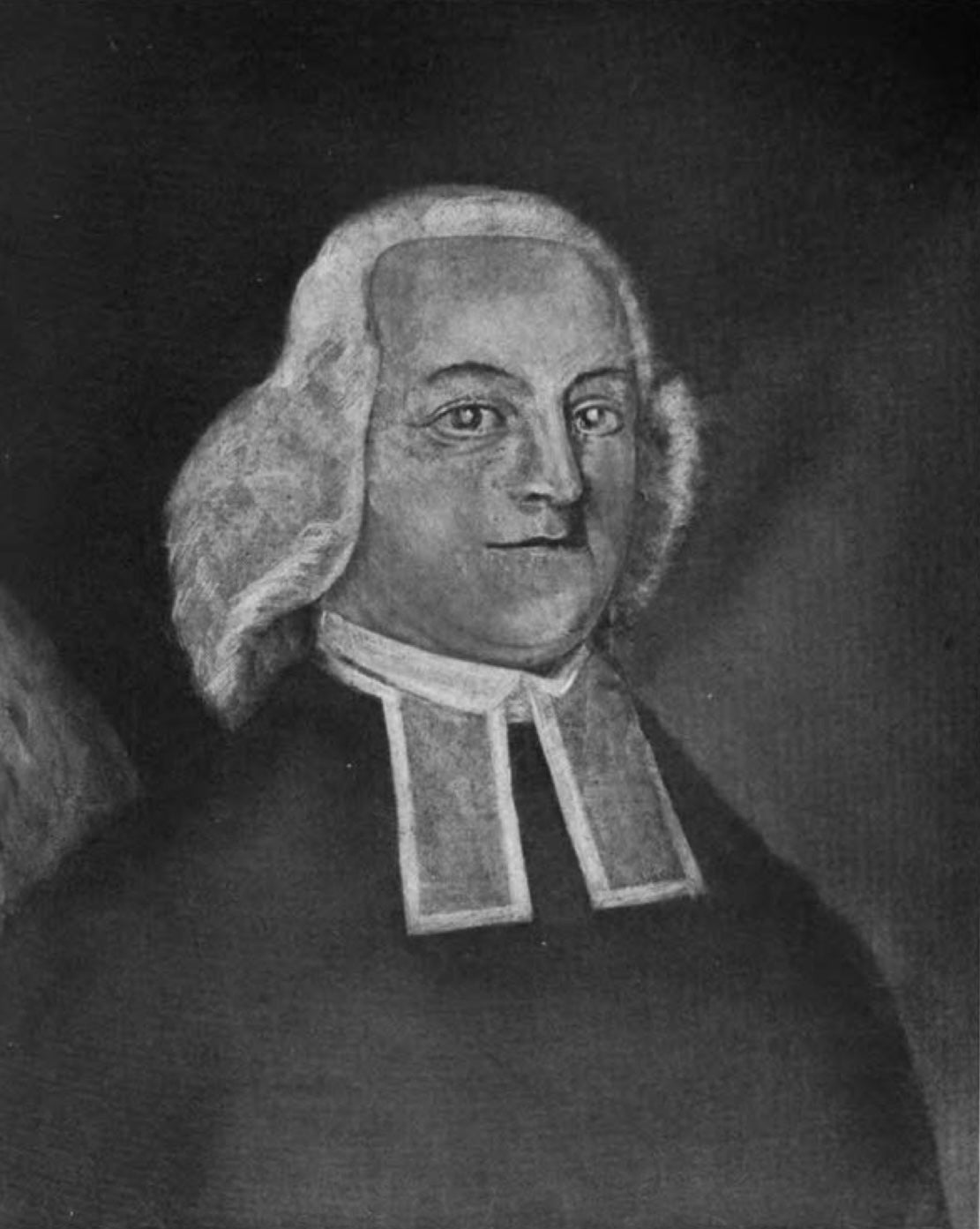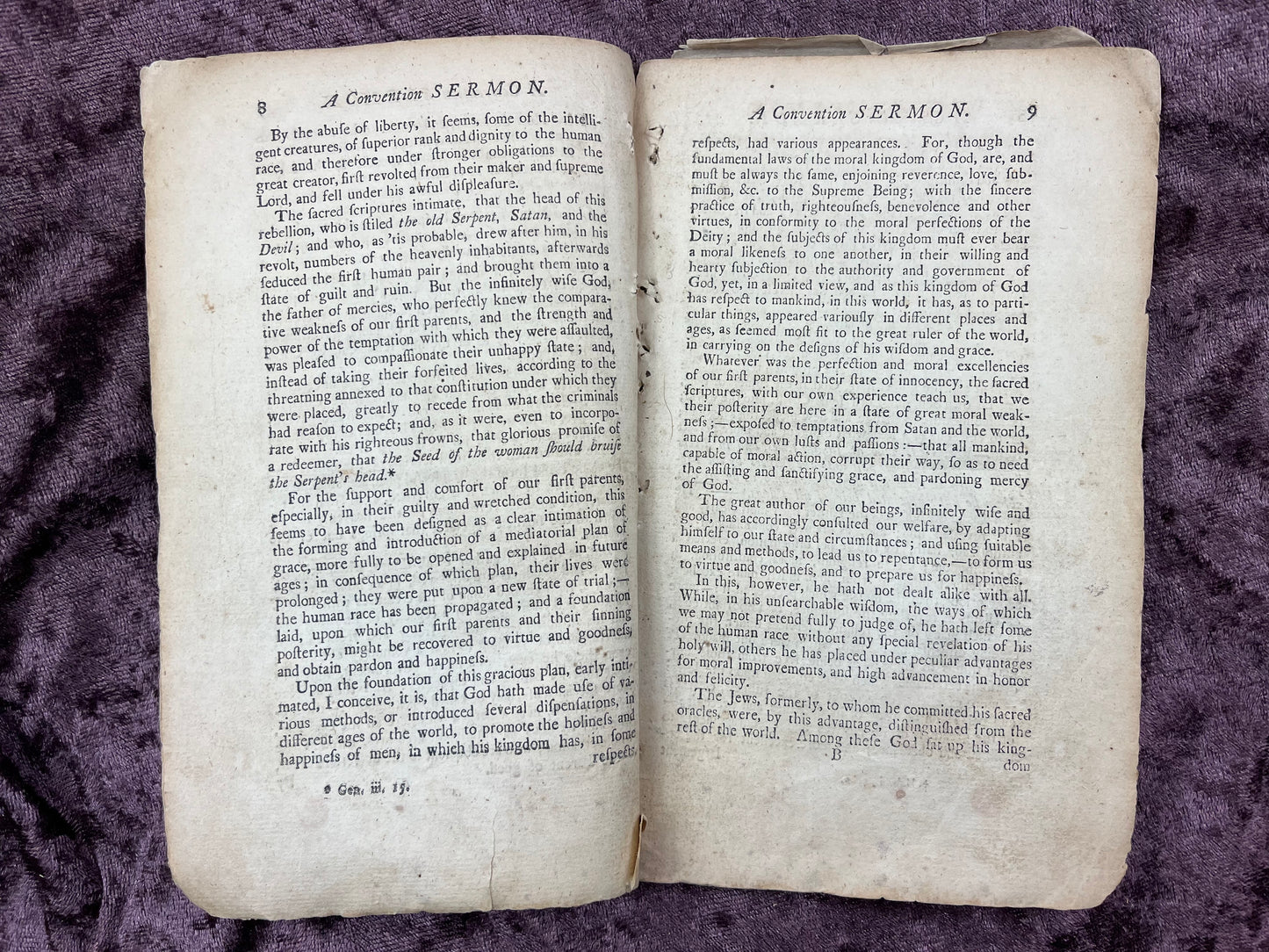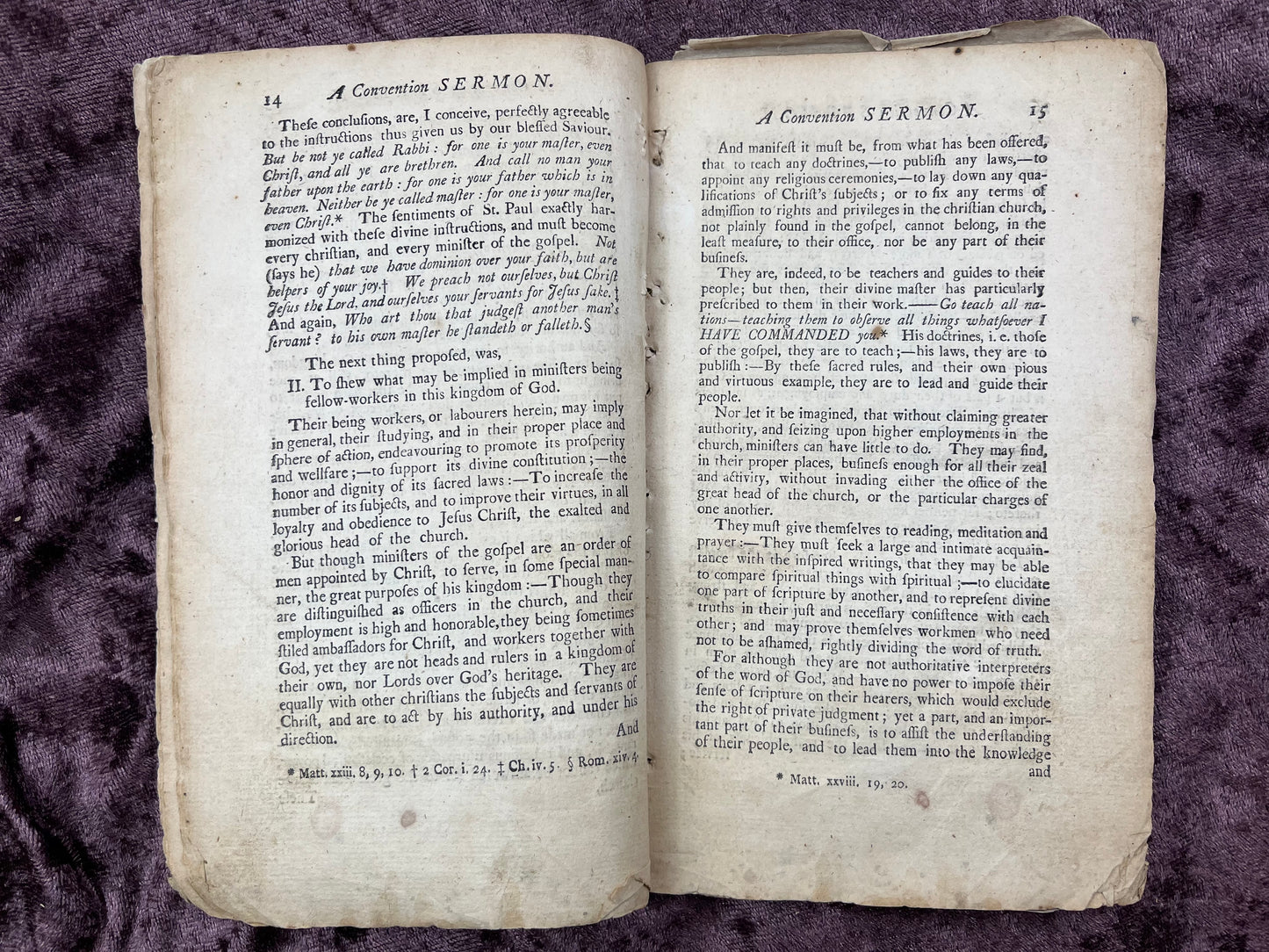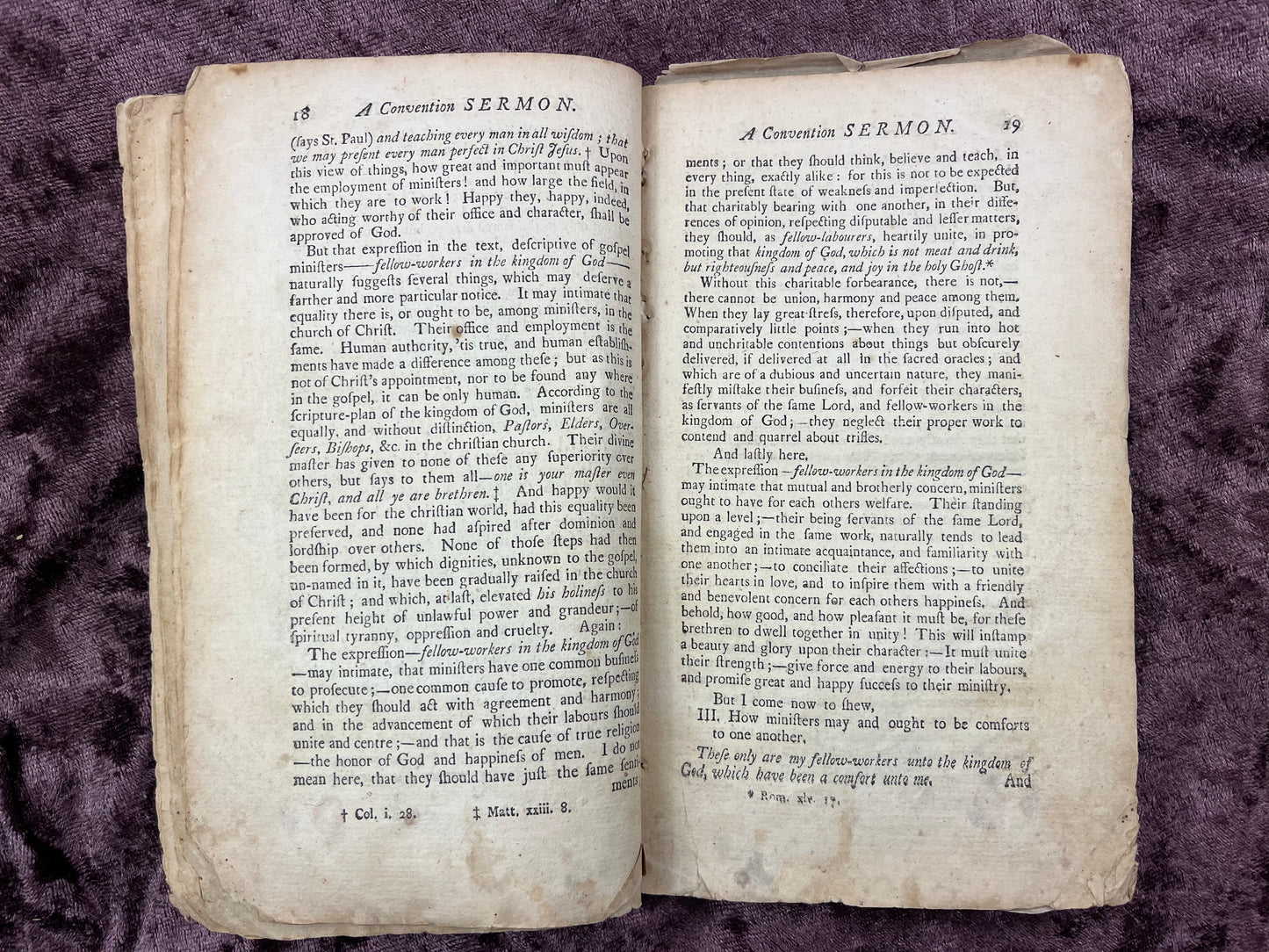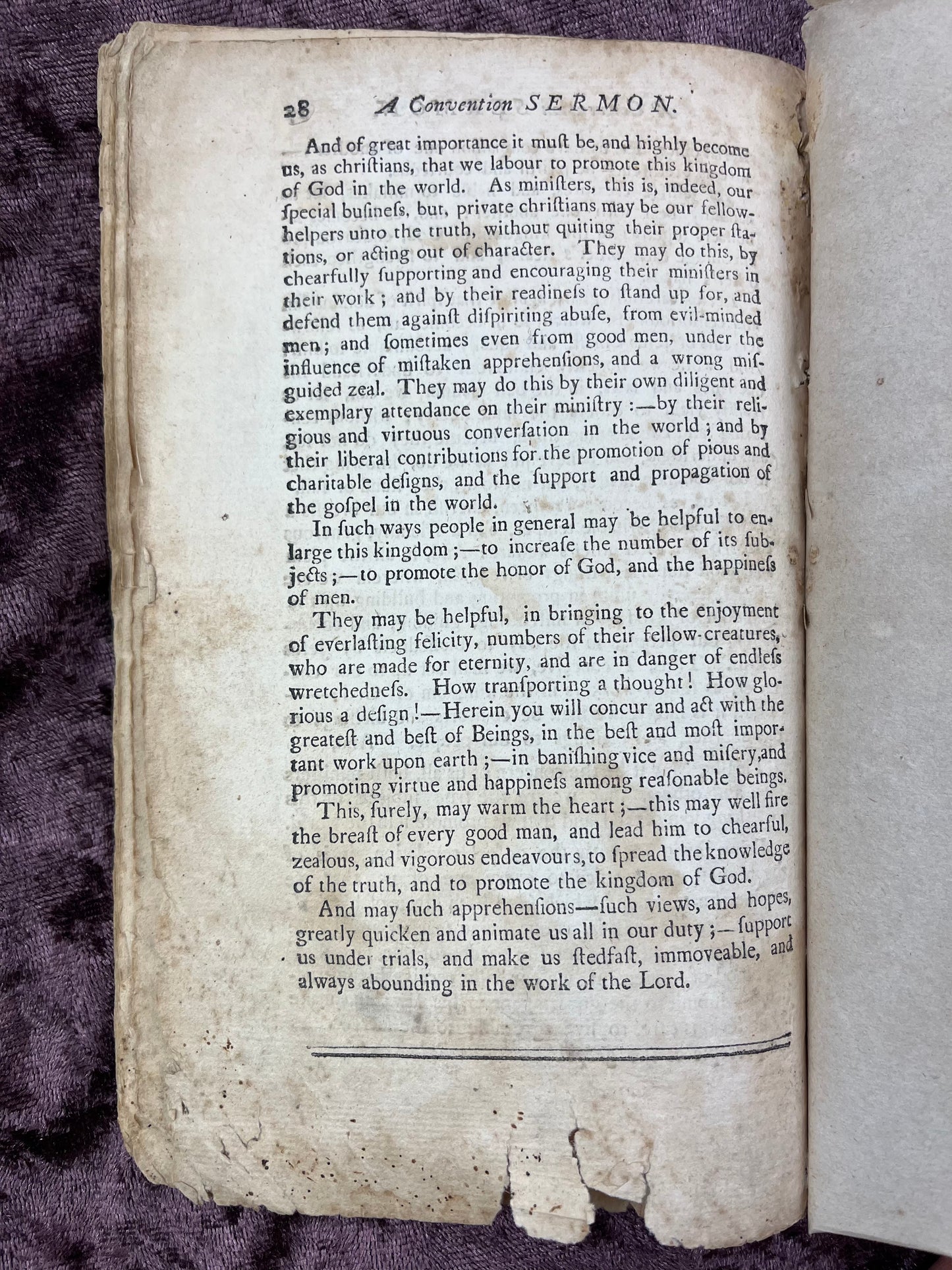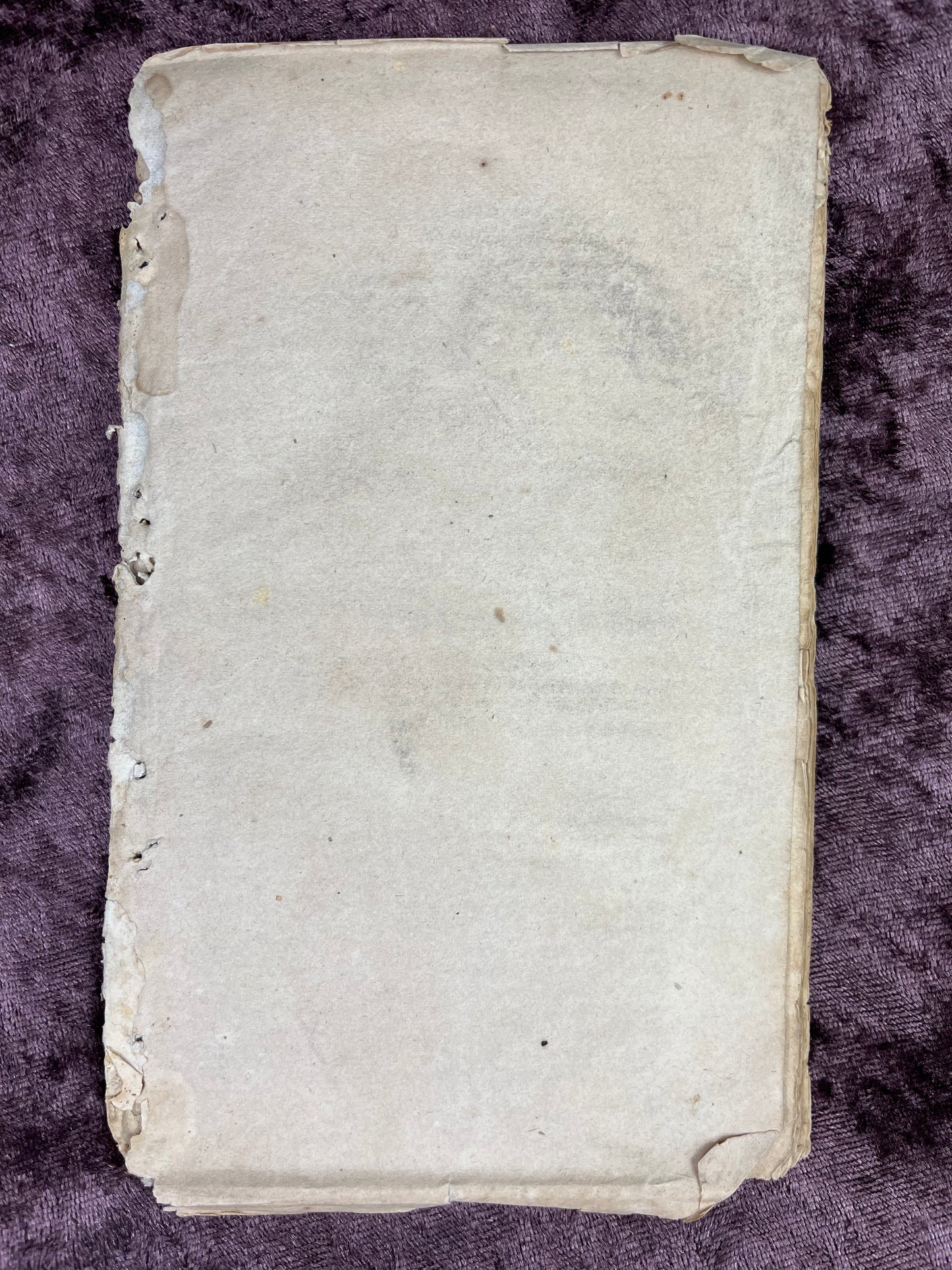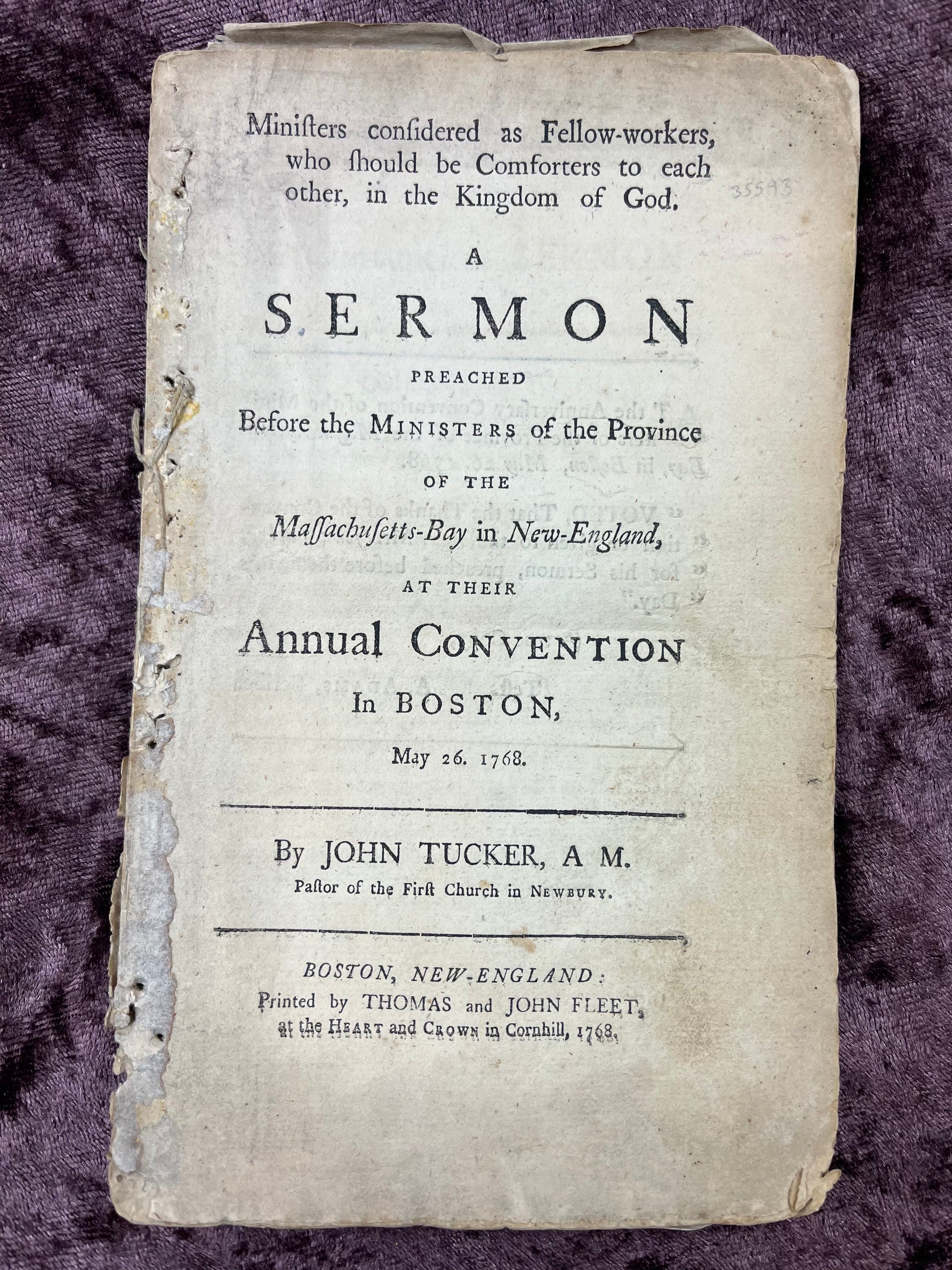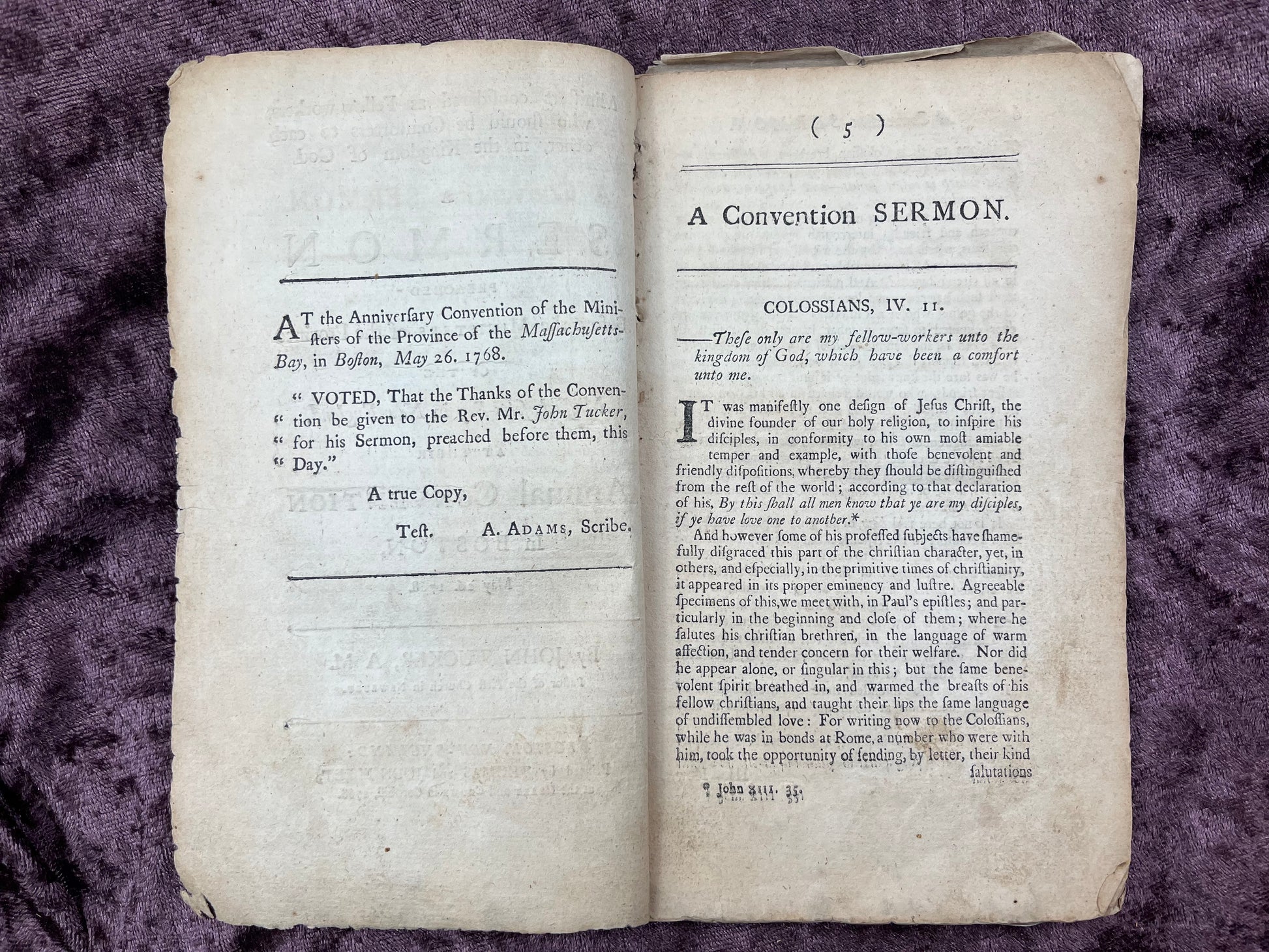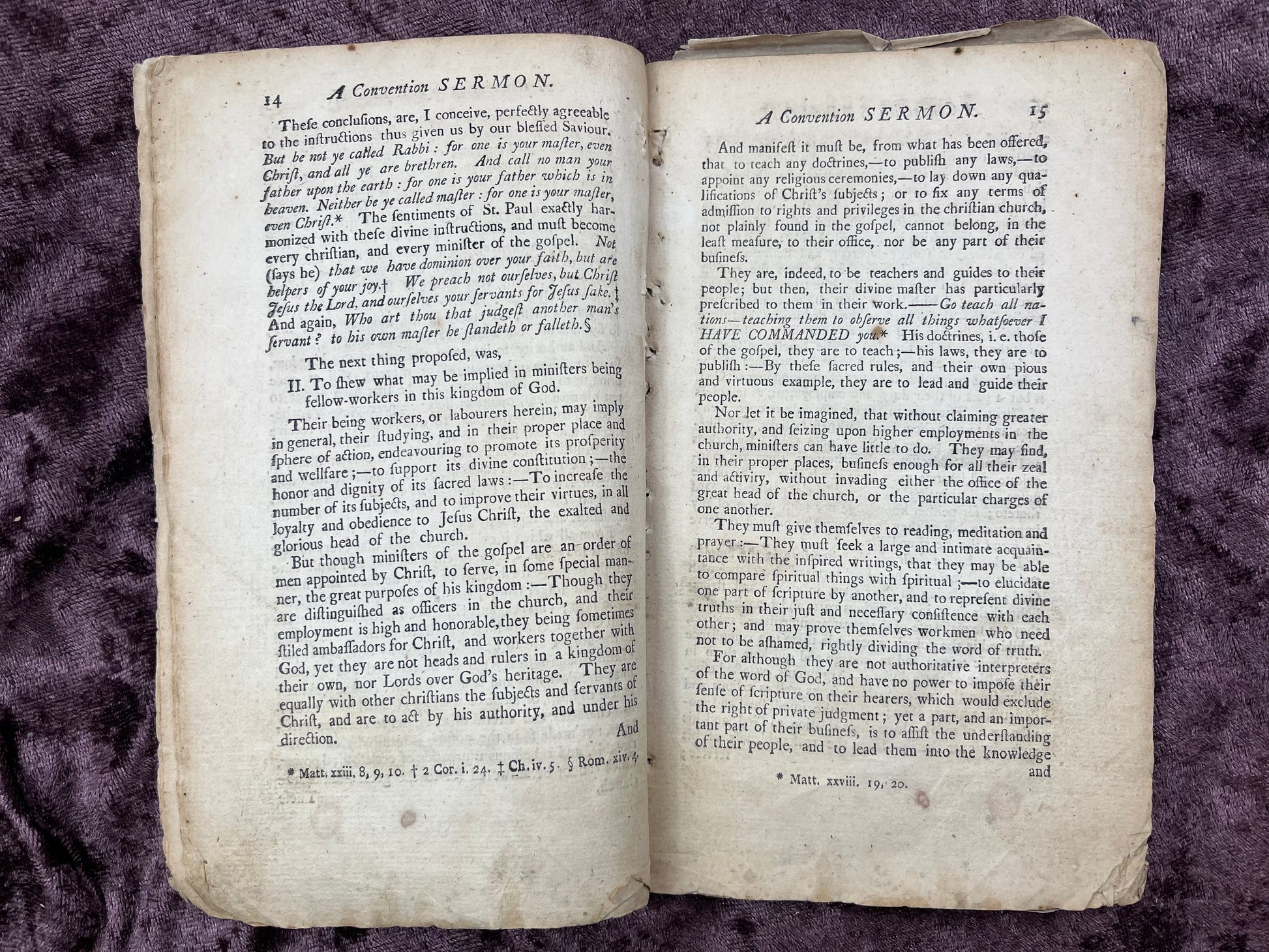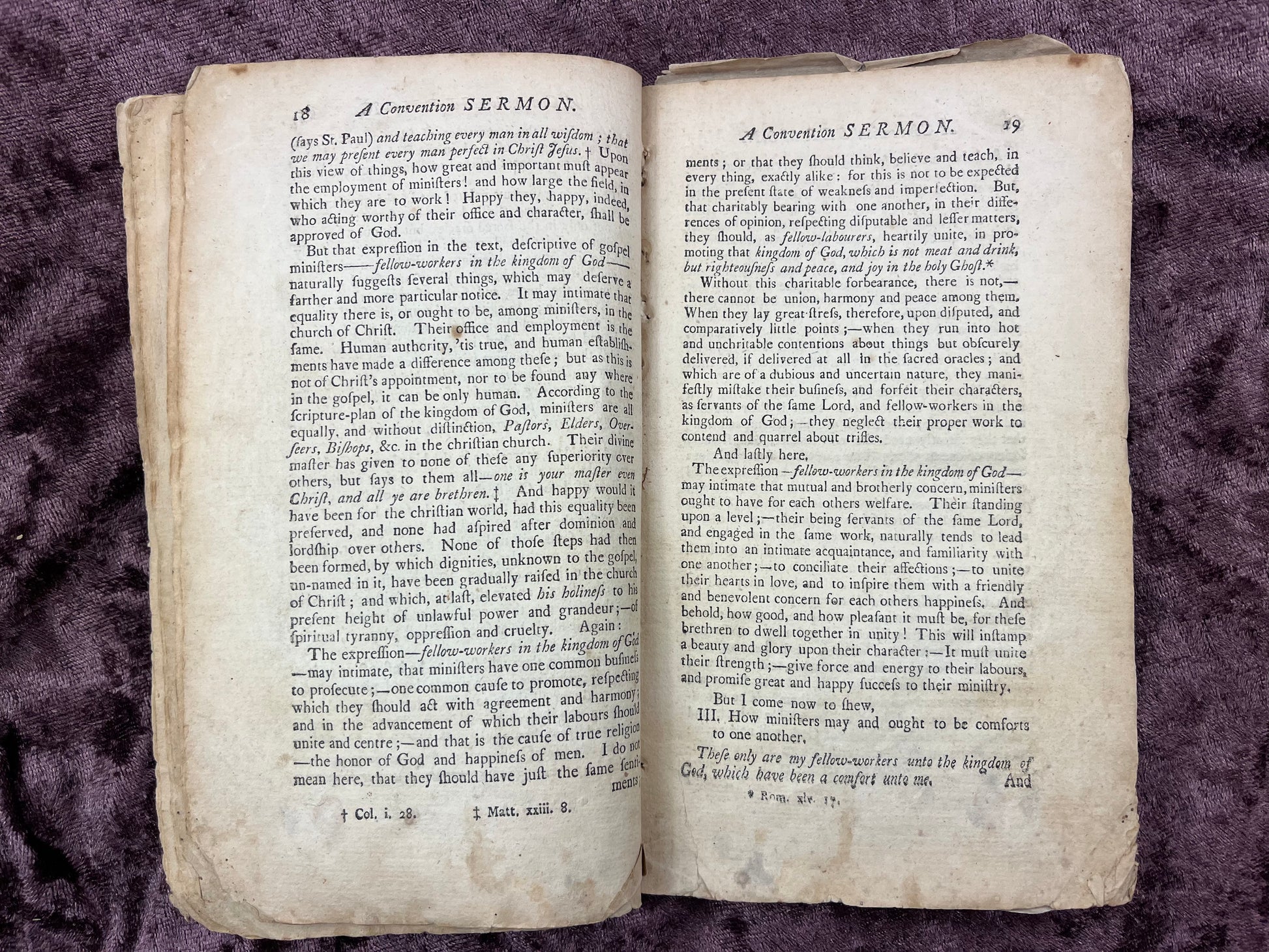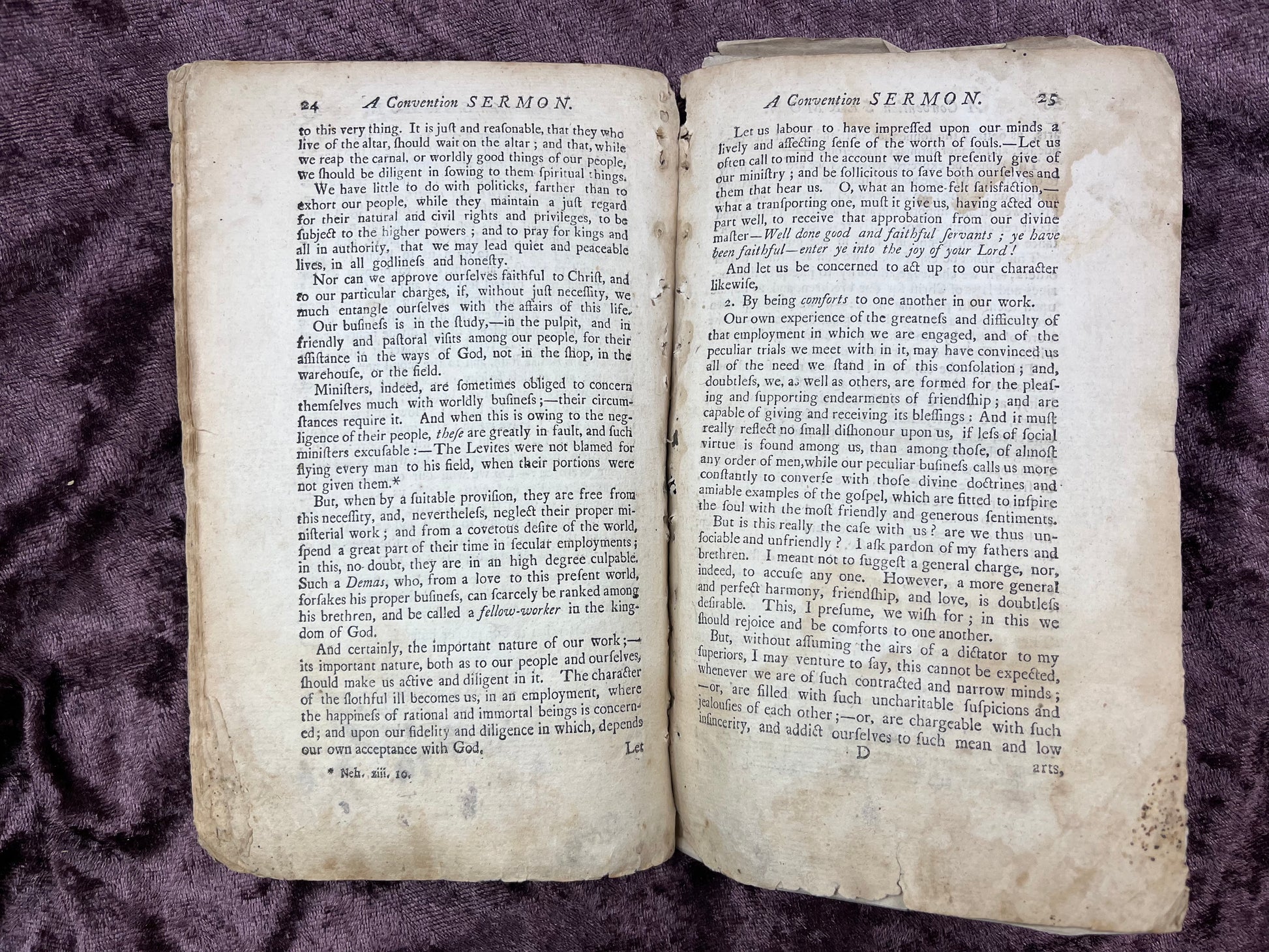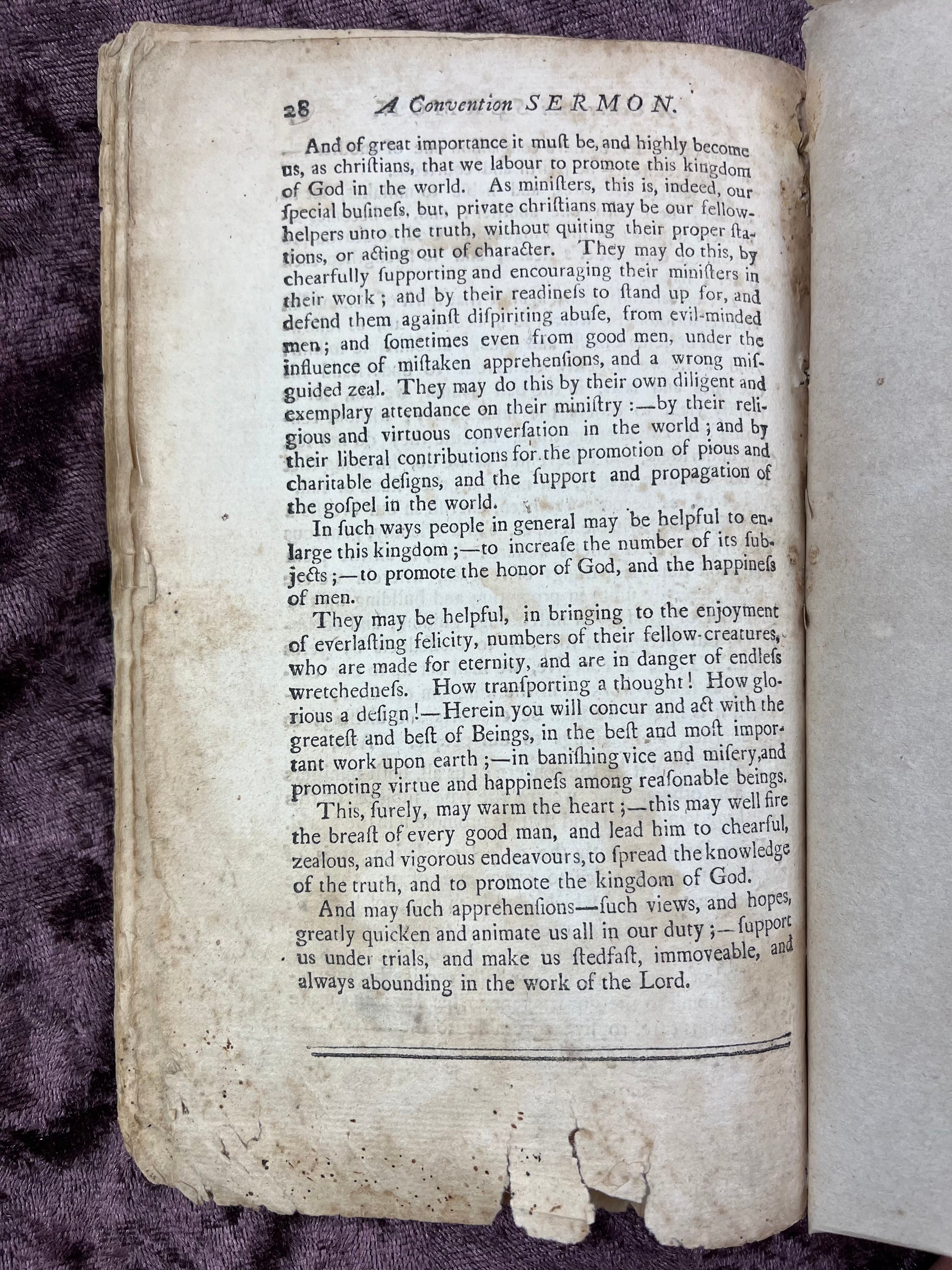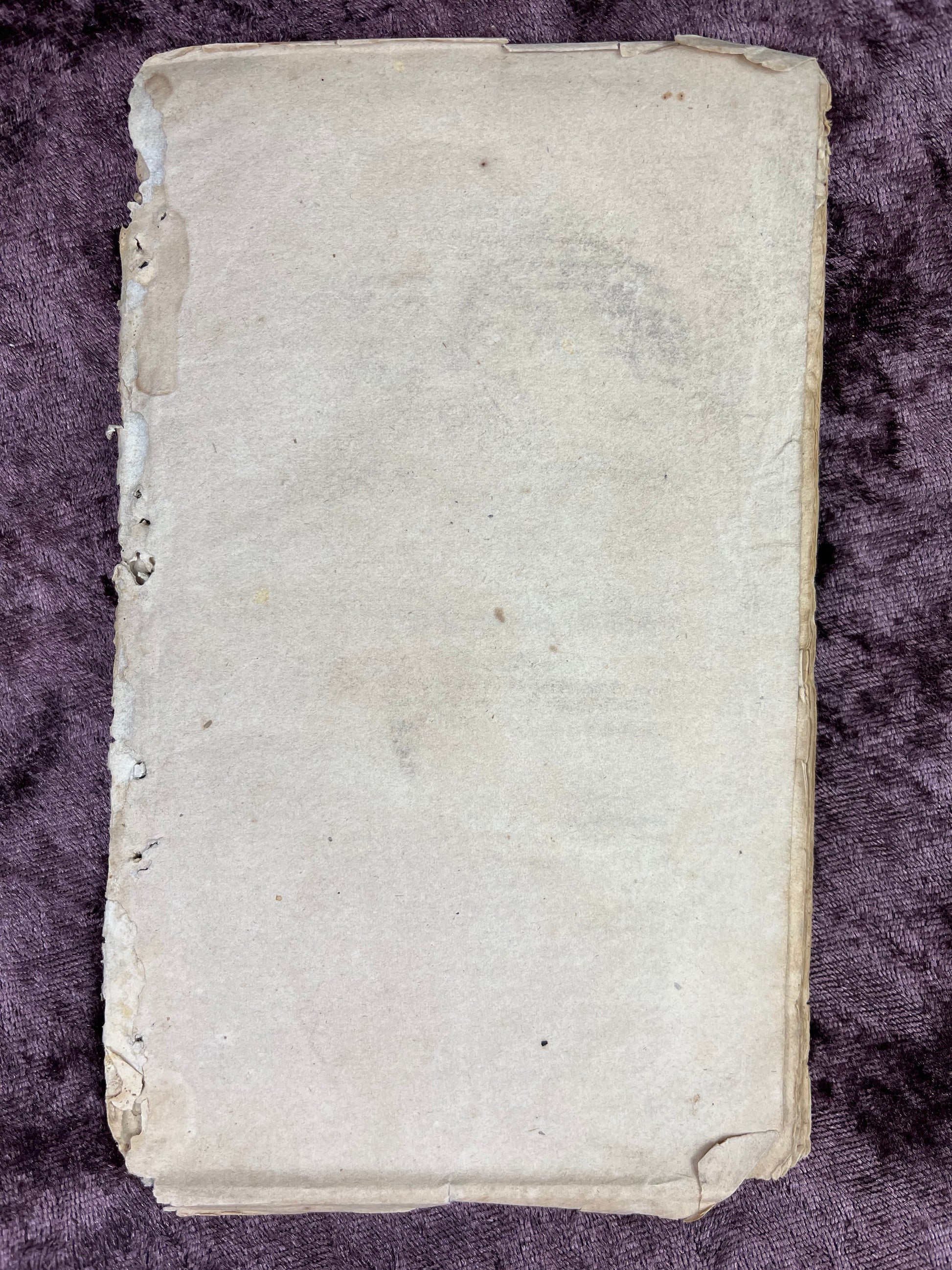1768 Octavo First Edition Pamphlet Ministers Considered As Fellow Workers, Who Should Be Comforters To Each Other, In The Kingdom Of God By John Tucker
1768 Octavo First Edition Pamphlet Ministers Considered As Fellow Workers, Who Should Be Comforters To Each Other, In The Kingdom Of God By John Tucker
Couldn't load pickup availability
Share
Importance: In this work Tucker encourages ministers to support each other, and reminds them of what their priorities should be. He felt ministers had to be involved in the "affairs of life", but they shouldn't forget to be "faithful to Christ".
The Rev. John Tucker, who came to Newbury to assist Rev. Christopher Toppan, was born in Amesbury, September 20, 1719, and graduated from Harvard in 1741. Dr. Tucker was called to be associate pastor July 16, 1745, although many influential men in the parish vigorously opposed him, as he was an Arminian in his theological views. Dr. Tucker, after giving the matter serious consideration and consulting the clergy of neighboring towns, accepted the call. On the day of his ordination, November 20, 1745, a strong protest was sent to the ordaining council, but it was not heeded.
The service at Dr. Tucker's ordination was as follows: Singing of Psalm. Prayer by Rev. William Johnson of Fourth Church, Newbury (now the Second in West Newbury). Sermon by Rev. Payne Wingate, Amesbury. Charge to the People, Rev. Caleb Cushing, Salisbury. Right Hand of Fellowship, Rev. Joseph Lowell of Third Church, Newburyport (now the First Religious Society of Newburyport.) Closing Prayer, Rev. Thomas Barnard, Second Church, Newbury (now the First in West Newbury.)
Rev. Christopher Toppan died July 23, 1747, and the Rev. John Tucker thereafter assumed full charge of the parish.
Cultural conditions in the colony had been improving during the first half of the eighteenth century. Many men through privateering, speculation in land, and commercial ventures had become rich, and were desiring and attaining a higher standard of living than at the beginning of Dr. Toppan's pastorate. That the demand for reading was by no means confined to cultivated circles, is indicated by the publishing of almanacs which were almost magazines in themselves. These were eagerly read by the common people. Skill in music and art were being acquired by professional artists and those who could afford such avocations.
In the middle decades of the eighteenth century the position of the established Congregational Church in the Massachusetts Bay Colony was constantly attacked by dissenting members who wished to form other denominations. The local community was sharply divided over the religious tenets of George Whitefield. The two factions, the New Lights, who followed Whitefield, and the Legalists, sent petitions and counter petitions to the General Court. The former prayed for "liberty to support the public worship as they pleased and not to be taxed elsewhere," while the latter strenuously opposed the grant of this privilege.
Many withdrew from the First Church and formed the Presbyterian Church of which Rev. Jonathan Parsons was pastor. These Presbyterians were obliged to contribute to the support of the First Church, much against their will, until in 1770 they obtained partial relief. In 1780 the first state constitution secured a large degree of religious liberty.
The French and Indian War and the Revolutionary War almost filled the fifty years of Dr. Tucker's pastorate. It is written of him that "during the Revolution he bore with his people the privations and trials of this tremendous struggle." He endured all the fluctuations of paper money of that period. At one time he found it necessary to use a wheel-barrow to carry home his salary! Regardless of their own privations, the people of this parish, on February 6, 1775, sent £46 for purchase of provisions for the suffering inhabitants of Boston.
An article written fifty years ago by Miss Mary Toppan Little states that "theologically Dr. Tucker was not a Trinitarian, but in spirit lived a great doctrine, and with all the warmth of a true believer preached 'Christ and Him Crucified.' In all these trials and disaffections the Pastor was found equal to the occasion. He shrank from no responsibility appertaining to his office. Every emergency was met with firmness and decision characteristic of his ability. He moved on his way in undisturbed serenity, illustrating by his daily living, the religion which he taught." Because of theological differences, only sixty-seven persons became members of the church during Dr. Tucker's pastorate.
It is interesting to get a glimpse of Dr. Tucker's contacts outside of his parish. He went to Boston occasionally and, according to Miss Elsie's diary, attended Harvard Commencement in 1789. His daughter also wrote of her father's having breakfast at the home of United States Senator Tristram Dalton, when President Washington was the guest of honor. Dr. and Mrs. Tucker also dined with Nathaniel Tracy. Although the political power of the clergy had declined in the ninety-six years since Dr. Toppan was ordained pastor, it is evident that the ministers still had great social prestige.
John Quincy Adams (later President of the United States) studied law as a young man with Theophilus Parsons in Newburyport. Mr. Adams in his journal mentioned that he attended meeting at the First Church in Newbury at least seven times and was very favorably impressed with Dr. Tucker's ability. Following Dr. Tucker's death on March 22, 1792, the First Church in Newbury had no permanent minister for four years.
Source: *First Parish, Newbury, Massachusetts, 1635-1935.
Binding: Disbound Octavo Pamphlet. Original fly-leaf at rear.
Provenance: None.
Collation & Notes: A4 ([A1r] H.T. & [A2r] G.T.P.), B4, C4, D2 (ends D2v). [14] ff. (28 pages).
Complete, with an original title page. Lacks half title. Vertical chain lines. WorldCat & OCLC records 14 copies. Evans 11098. Sabin 97316.
Condition: Leaves (8.5” x 5.25”). Stained. Some fraying & tears. Detaching.
